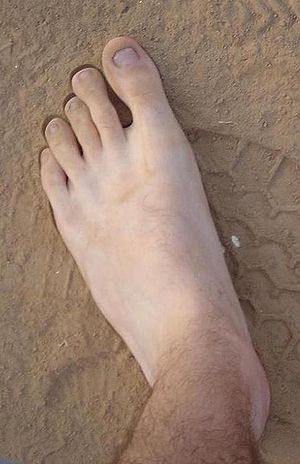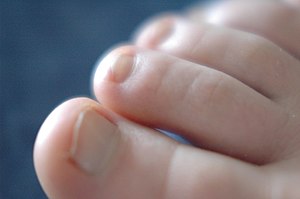 |
| (Photo credit: Wikipedia) |
Diabetic neuropathy is damage to nerves due to blood sugar levels being too high, which is caused by diabetes. Nerve damage will affect about half of all people with diabetes, although symptoms may be slow to appear. Symptoms vary and may affect different parts of the body. One location commonly affected is arms and legs and sensation from tingling to deep pain may be experienced. As damage to the nerves continues, sensation decreases due to poor circulation. This is where the danger really begins. Because of the loss of feeling, you may not feel objects you step on, know you have an open wound or realize you have no concept of heat, and actually burn yourself. An untreated wound may result in an infection and with poor circulation the body’s ability to heal itself is greatly diminished. Neuropathy may also mask other things going on in the body such as the pain that functions as early warning of heart attack.
Every person who has diabetes needs to be seen at least annually, more often if warranted. A thorough foot examination should be done each time you visit your doctor. Dr. Blaakman can help diffuse problems with early detection and he can teach you to be more aware of your own feet. Conduct a daily foot exam and make it routine.
Call Dr. Blaakman at (877) 941-3338 for a comprehensive foot examination. Make sure you are writing down all your questions about diabetic neuropathy. Arm yourself for survival with good information and work at controlling your blood sugar.
References:
http://www.ncbi.nlm.nih.gov/pubmedhealth/PMH0001713/
http://www.mayoclinic.com/health/diabetic-neuropathy/DS01045/DSECTION=symptoms







